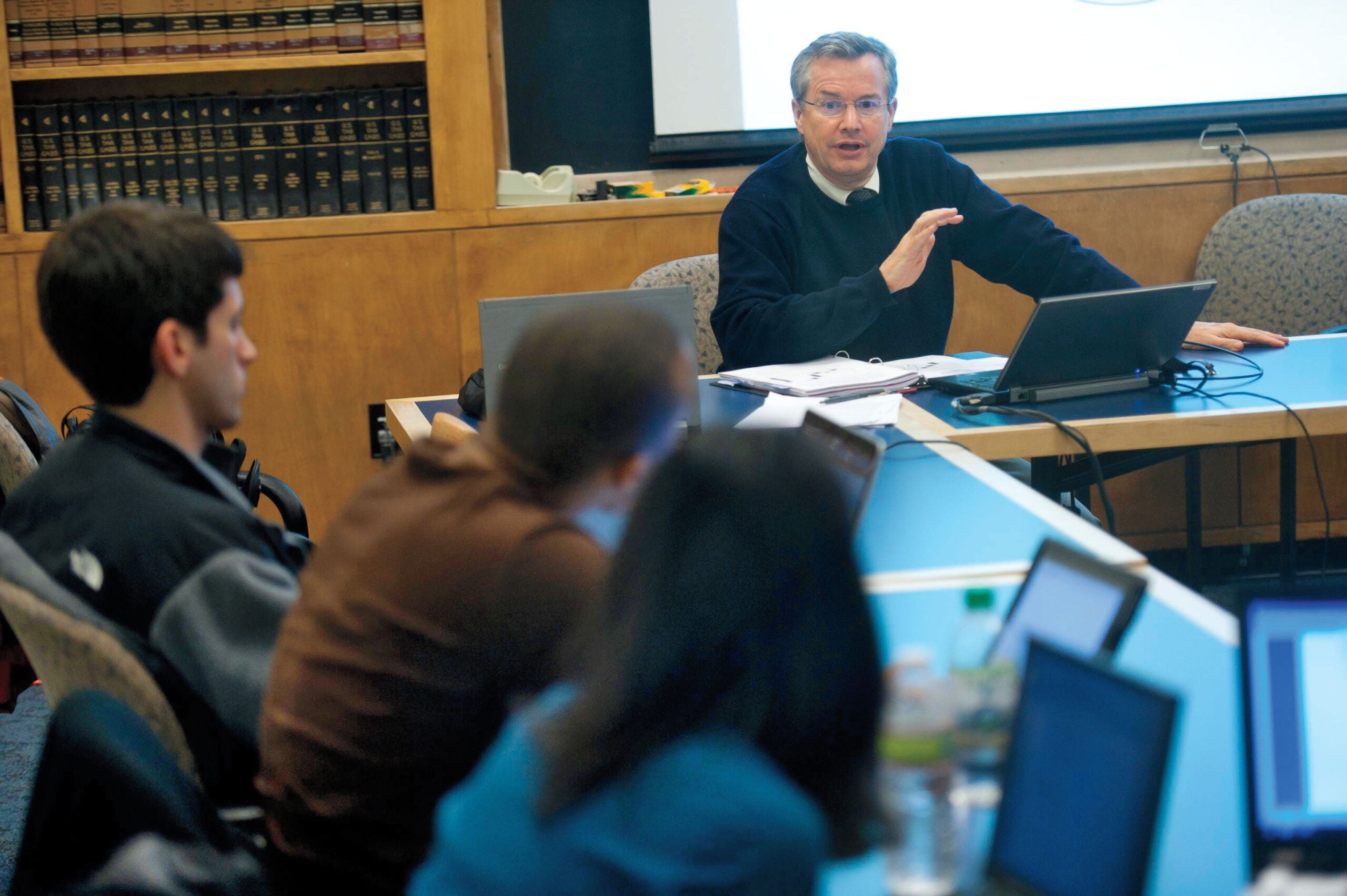While years ago, clinics at Harvard Law School were focused primarily on poverty law, student demand for business-oriented clinical experiences has since skyrocketed. And for HLS students interested in the business world, there are now numerous clinical opportunities.
This year, students are working for the U.S. Department of the Treasury creating a treatise on the legal rules that apply to the government’s collection of delinquent debts, including student loans, small business loans, administrative fines and child support debts.
Professor Howell Jackson ’82 (pictured above) developed the federal debt collection clinic last year in response to a request from Treasury for assistance in preparing the treatise, which will be used by hundreds of government lawyers and private practitioners. There is significant educational value to students, Jackson says, as the field is full of challenging issues of statutory interpretation and constitutional restraints. Plus there is the added complexity of working for a real client. “Unlike in classroom discussions, students can’t just get by reciting Supreme Court dicta on balancing tests under the Due Process Clause. They must come up with much more practical and pragmatic advice,” says Jackson, an expert in financial regulation and consumer protection.
The Transactional Law Clinics are among the most popular at HLS, in large part because so many students plan to go into transactional work after graduation. “Students learn to develop the mindset and mental toolkit of a transactional lawyer, to figure out and structure the legal landscape of proposed deals, to navigate their clients through and successfully complete transactions, and to help clients launch and grow successful businesses,” says Clinical Professor Brian Price, TLC director. Clients also include artists and musicians, and students are matched with projects that meet their interests, including those involving trademark matters, licensing agreements, and corporate governance and tax issues.
The Sports Law Clinic is also in high demand, but few students will end up in a sports law career, says Peter Carfagna ’79, an expert in sports management who has represented a number of major athletes and launched the clinic a few years ago. For most, the clinic is an interesting and fun way to learn how to draft sophisticated contracts, licensing agreements, and leases, essential skills for representing corporate clients and others. The clinic, he says, “is all business law.”
Other clinics that offer some business-law experience include the Negotiation and Mediation Clinical Program, which has represented Hewlett-Packard, the technology company ABB, and the Cleveland Indians, among other clients, assisting them with deal-making, dispute system design and negotiation strategy.
